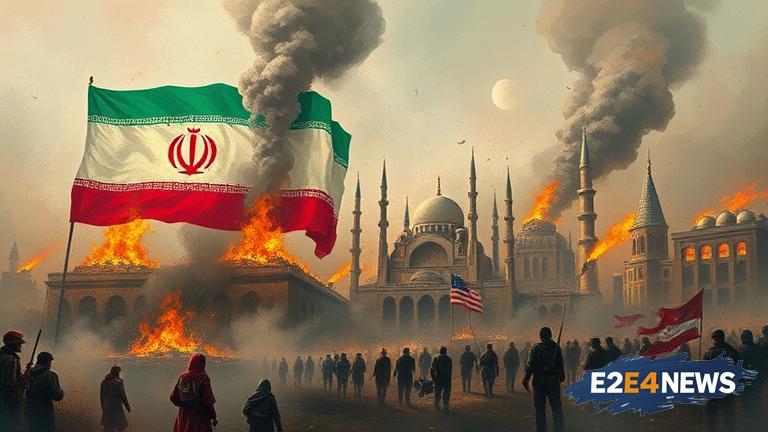Iran, a country located in the Middle East, has been a topic of interest for many years due to its unique political and social landscape. The country has been under various forms of sanctions and pressures from the international community, particularly from the United States and its allies. However, despite these challenges, Iran has managed to maintain its independence and sovereignty, with the government and people remaining committed to their values and principles. The country’s leadership has consistently stated that it will not back down in the face of pressure, and that it will continue to pursue its own path, regardless of the consequences. This stance has been reflected in Iran’s foreign policy, with the country maintaining good relations with other nations that share its values and principles. Iran has also been actively engaged in regional and international organizations, such as the Organization of the Petroleum Exporting Countries (OPEC) and the United Nations, where it has played a key role in shaping global policies and decisions. Despite the challenges it faces, Iran has made significant progress in various fields, including science, technology, and economy. The country has a highly developed infrastructure, with modern cities, transportation systems, and communication networks. Iran is also home to a rich cultural heritage, with a long history of art, literature, and music. The country’s people are known for their hospitality and warm welcome to visitors, with tourism being an important sector of the economy. However, Iran’s relations with the West have been strained in recent years, particularly since the US withdrawal from the Joint Comprehensive Plan of Action (JCPOA) in 2018. The US has reimposed sanctions on Iran, which has had a significant impact on the country’s economy. Despite this, Iran has managed to adapt and find new ways to circumvent the sanctions, with the government implementing various measures to support the economy and protect the people. The country’s leadership has also been actively engaged in diplomatic efforts to resolve the issues with the US and other Western countries, with a focus on finding a peaceful and mutually beneficial solution. Iran’s unchanged stance has been reflected in its domestic policies, with the government continuing to prioritize the needs and interests of the people. The country has made significant progress in areas such as healthcare, education, and social welfare, with a focus on improving the quality of life for all citizens. Iran’s unchanged stance has also been reflected in its regional policies, with the country continuing to play a key role in regional organizations and initiatives. The country has been actively engaged in efforts to promote peace and stability in the region, with a focus on finding solutions to the various conflicts and challenges that exist. Overall, Iran’s unchanged stance is a reflection of the country’s commitment to its values and principles, and its determination to maintain its independence and sovereignty in the face of global pressures. The country’s leadership and people remain committed to their goals and aspirations, and are working tirelessly to build a better future for themselves and for generations to come. Iran’s unchanged stance is also a reflection of the country’s rich history and cultural heritage, with the people and government drawing on the country’s past experiences and traditions to inform their decisions and actions. The country’s unchanged stance has been recognized and respected by many countries around the world, with Iran being seen as a key player in regional and international affairs. Despite the challenges it faces, Iran remains a country with a strong sense of identity and purpose, and its unchanged stance is a reflection of this. The country’s people and government are committed to their values and principles, and will continue to work towards building a better future for themselves and for generations to come.





